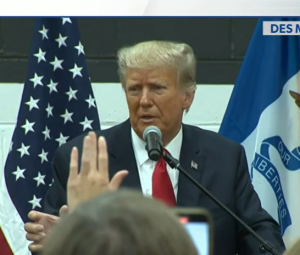Steve Bannon, a close aide of former United States Donald Trump, was held in contempt by the House of Representatives for defying subpoenas linked to January 6 commission. A total of 9 members of the Republican party were in favour of the decision.
Even though Democrat lawmakers, who currently dominate the House of Representatives, received the support of nine Republican counterparts. These included:
–Representative Adam Kinzinger (Illinois)
-Representative Liz Cheney (Wyoming)
-Representative Anthony Gonzalez (Ohio)
–Representative Brian Fitzpatrick (Pennsylvania)
– Representative Jaime Herrera Beutler (Washington)
-Representative John Katko (New York)
-Representative Nancy Mace (South Carolina)
-Representative Peter Meijer (Michigan)
-Representative Fred Upton (Michigan)
The vote on Thursday ended with a tally 229-202 in favour of the contempt case against Steve Bannon.
Out of the 9 Republican lawmakers who voted to build a case against Bannon for defying the summons sent from the House of Representatives, two are also part of the House Select Committee, which is responsible for investigating the January 6 storming of the United States Capitol Complex. These lawmakers were Liz Cheney and Adam Kinzinger.
Democrats have vowed to comprehensively probe the assault in which hundreds of Trump’s supporters battered their way past police, injured dozens of officers and interrupted the electoral count certifying President Joe Biden’s November victory.
Lawmakers on the panel say they will move swiftly and forcefully to punish anyone who won’t cooperate with the probe, according to reports from Associated Press.
What is next?
The House vote sends the matter to the United States attorney’s office in Washington, where it will now be up to prosecutors in that office to decide whether to present the case to a grand jury for possible criminal charges. It’s still uncertain whether they will pursue the case — Attorney General Merrick Garland would only say at a House hearing on Thursday that they plan to “make a decision consistent with the principles of prosecution.”







